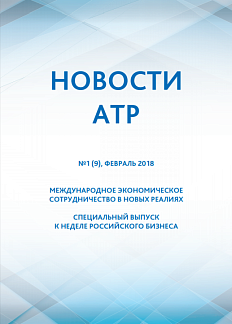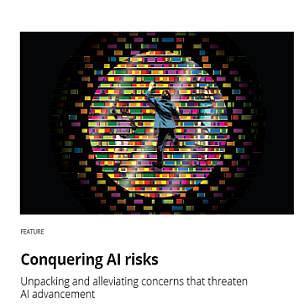Business first vs. people first
As the crisis hit, many companies started to focus on their people and communities first, and money only second. Unlike in previous recessions they suddenly realised that the biggest loss for them would be to lose their workforce. Uber, Lyft, DoorDash, Instacart, Postmates and other delivery services offered financial coverage for those partners, who are forced to stay at home. Starbucks, financially hit hard by the lockdowns, still offers catastrophe pay in the US for baristas affected — including all employees over 60, pregnant or underlying health conditions. Many large tech companies committed to paying the average wage to hourly workers even if their onsite support jobs are less needed. We all know that for many firms lay-offs will be inevitable if the restrictions run too long. But still, we can hope that this human-focus keeps out when things go back to normal.
Going green vs. going effective
2019 was the year of environmentalist movements. Governments, companies and people alike made many steps to tackle climate change and be more environmentally friendly. Now everybody has a different priority order: save the people, save the jobs, keep the machine going. Translated to everyday life: even though those who follow zero-waste or minimalist lifestyles may try to make conscious decisions even now, for most people stockpiling pasta, flour and toilet paper the recyclability may not be the first priority. While the closure of factories and a drop in transportation have a clear but temporary positive effect, if governments want to revive the economy forgetting about the climate emergency, we come out worse. The best-case scenario is that money will go to green investments, and some changed behaviour — like preferring local suppliers — will remain.
Safe procedures vs. agility
Answering to an unprecedented event needs agility — and there is a lot out there. It’s amazing how fast companies switched to remote work, shops, transportation companies and hotels implemented new rules, schools became digital, communities found new ways to connect and help. And all this within days. In war-times traditional rules are often abandoned: no-one thought twice before 3D printing respirator valves without proper license in Italy. Of course, many rules will strike back after normalisation and firms will start to prepare better for a new crisis by developing contingency plans and fallbacks. But at the same time, the fear of change will be much lower as everybody experienced that rapid, unplanned changes can still work.
Physical vs. online
No need to overexplain: whatever can be done online is now online — so many things that Netflix and YouTube were asked to limit streaming quality in Europe to make room for others on the network. People who used to say they need to see what they are buying now busy finding a free slot for delivery. Climate strike moved online. Those who believed only in the strength of face-to-face meetings are forced to try out calls.
Managers who wanted to see if their people are working, now checking only results. Employees who were afraid of too much distraction when working from home now do it with all the kids also running around. Waldorf schools where student use of IT tools was not recommended before secondary age are holding classes on Viber. Theatres, orchestras, circuses started streaming performances. Even Fiona, the hippo is online. The use of the internet shows its best capabilities, and hopefully, those who now get a fresh taste of it will remain active users. Just remember that this is a cultural change. The first phase is the honeymoon period when most people are fascinated by the new way of things. But soon the culture shock — or in this case quarantine fatigue — will follow. And even if we can live through that and reach finally the adaptation phase, we will need the strengthening of tools as well: wider acceptance of digital signatures, development of bots, automatic workflows and controls and better internal infrastructure of firms.
EU integration vs. autonomy
From the «four freedoms of EU» two are already limited: free movement of people, and free movement of goods. The former is understandable, but the latter is disturbing: several EU countries, including Germany, France, Poland and the Czech Republic restricted or prohibited the export of some medical and protective equipment, even within the EU. When Italy asked for help through the official EU coordination channel, no one reacted. In this crisis, governments focus on the country-, not the EU-level optimum. And solving the financial problems and the future of Euro is a similar question: will there be an EU level Marshall plan and Eurobonds or subsidiarity will apply? «It seemed that the group of 27 is going well together, but once mysterious things started to happen everybody was only for himself». Nice synopsis for a movie but will it have a tragic or a happy ending?
Sharing vs. owning
Sharing economy doesn’t seem to be a good idea when you want to avoid contact with other people. Do you want to sit in a car that was used by unknown people minutes ago or in your own? Do you want to stay in an apartment where you do not know how they do the cleaning or in a hotel room with professional standards for that and liability if something goes wrong? And as a gig economy worker or investor: what happens to you when the economy is not working? Will your platform provider take care of you as your employer would? Do you still think that buying flats to rent to tourists will make your living?
The majority of those economically active in Europe have never personally experienced times when things were simply not working. Sure there were political and economical crises, but you could always trust that the shops will be open, the transportation will operate, kids can go to school and the tax authority will write to you at least once a year. This trust is very much needed for the operation of the sharing economy and now it is broken. People are fast to forget bad things but this can still have a lasting effect.
Private vs. controlled
In times of uncertainty, people are looking for strength and control. And in times of state of emergency, governments have more right to control citizens and organisations. And they are not afraid to use it. From limiting movements of people and asking sensual private data (health data, social contacts, etc.) through requisition of masks in France or the army taking over management of critical companies in Hungary. Not to speak about the Chinese massive surveillance using drones, facial recognition and mandatory QR code reading to track the movement and social contacts of people.
Now even companies ask their employees for private health and travel data — and many forgot to write a privacy notice. These are all OK fighting the virus and keeping the economy working. But if people accept it as a new normal and governments get used to having all this data and power, the times of GDPR soon become obsolete.
+1 Invisible labour vs. visible work
School closures combined with many people switching to home office or forced to stay home make the invisible work suddenly visible. People who used to leave early and arrive home late just to ask what is for supper and why the washing is not done yet now can feel and see 0-24 how much work is it to run a household and what an effort is it to teach or to care for children, elderly and people with disabilities. Would be nice to keep it in mind after we go back to the workplace and pay these people more respect — and more money.






